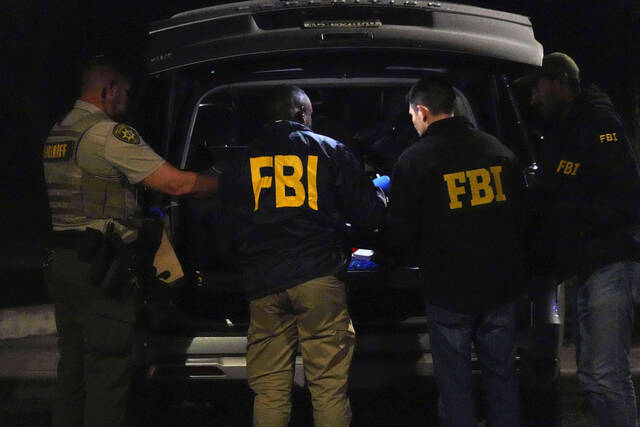A proposed federal law designed to seal nonviolent criminal records is drawing from the kind of bipartisan support that ushered a similar measure to law in Pennsylvania last summer.
The federal Clean Slate Act, H.R. 2348, includes sponsorship from U.S. Reps. Guy Reschenthaler, a Peters Township Republican, and Delaware Democrat Lisa Blunt Rochester. It would automatically seal the federal criminal records of people convicted of nonviolent drug crimes and give Americans convicted of other qualifying nonviolent federal offenses a streamlined process to petition the courts to seal their criminal records.
Advocates say so-called Clean Slate or Second Chance legislation would reduce recidivism, give millions of Americans an opportunity to live productive lives and boost the economy.
Its introduction comes on the heels of a package of federal criminal justice reforms adopted with rare bipartisan support last year.
Like the Pennsylvania law that was approved in June with only two no votes, the federal bill is drawing support from organizations as diverse as FreedomWorks on the right and the left-leaning Center for American Progress. Koch brothers-backed Americans for Prosperity, which supported Pennsylvania’s clean slate law and a similar measure that passed recently in Utah, is reviewing the bill. Mark Holden, general counsel for Koch Industries, shared the stage with David Plouffe, a former advisor to President Obama, when supporters unveiled the proposed federal policy last fall, the Washington Post reported.
Reschenthaler, a freshman congressman, was a state senator last year when Pennsylvania passed its Clean Slate law, the first of its kind in the nation.
“In Pennsylvania alone, approximately 3 million individuals, or over a third of working-age citizens, have criminal records. Although many of these are the result of low-level, nonviolent offenses, criminal records can present a significant obstacle to employment, housing and education,” Reschenthaler said, explaining his support for the federal Clean Slate bill.
Blunt Rochester also touched on that theme.
“If our goal is to reduce recidivism and improve the lives of millions of Americans, we cannot allow hardworking and reformed citizens to be defined by their worst mistakes in life. With an inerasable criminal record, they are locked out of the American Dream,” she said.
The proposed Clean Slate Act would not allow sex offenders, those convicted of terrorism, treason, or other national security-related offenses, or those convicted of other violent crimes, to seal their records.
A companion Senate bill is expected to be introduced this spring.
Rebecca Vallas, vice president of the Poverty to Prosperity Program at the Center for American Progress and one of the original authors of the clean slate policy, hailed the introduction of the bill.
“By automatically sealing marijuana records and other nonviolent federal drug offenses — and, for the first time, creating a path to clearing other federal records by petition — the Clean Slate Act would help people get back to work, lift families out of poverty and interrupt the cycle of economic instability and recidivism trapping countless individuals and families in the justice system today,” Vallas said.
At the other end of the political spectrum, Adam Brandon, president of FreedomWorks, urged voters to contact their representatives and ask them to support the Clean Slate Act.
“Following on the heels of the First Step Act, monumental federal justice reform enacted last year, the Clean Slate Act would offer a meaningful way for newly-released and now-reformed citizens to both be incentivised to lead a crime-free life upon release and be given a real second chance to lead a renewed life as a law-abiding citizen,” Brandon said.








